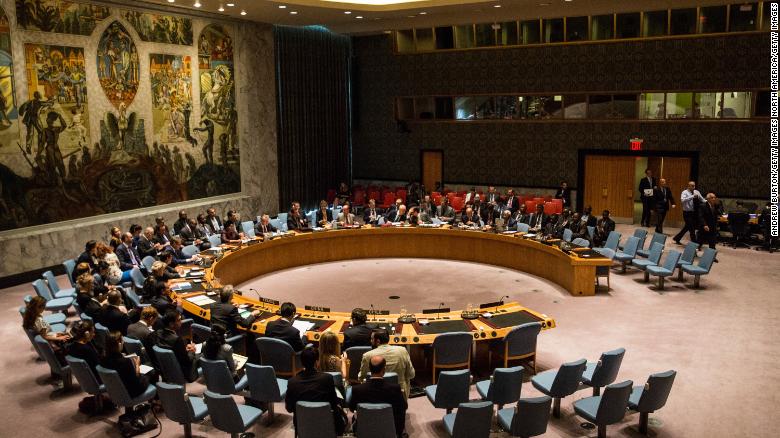Alwaght- The United Nations Security Council has rejected on Friday a US resolution to extend the controversial arms embargo on Iran due to expire in October.
The controversial resolution, which would have extended the embargo “until the Security Council decides otherwise,” mustered only two votes in the chamber -- the US and the Dominican Republic. It needed nine to pass, and even if it had gained that many, would likely have been shot down by a veto from China and Russia.
Russia and China voted no, but did not need to deploy a veto, while the remaining members of the Council abstained.
With the failure of the resolution, the US is now poised to move to unilaterally trigger snapback sanctions on Tehran -- despite having walked away from the Iran nuclear deal in 2018 -- a potential action that has drawn skepticism and alarm from allies.
"The Security Council's failure to act decisively in defense of international peace and security is inexcusable," US Secretary of State Mike Pompeo said in a statement on Friday before the Security Council announced the results of the vote.
The US has become isolated over Iran at the Security Council following President Donald Trump’s withdrawal from the multilateral Iran nuclear deal 2018.
Iran has said that the US resolution will fail to gain the required support at the Security Council, pointing out that Washington has no legal right to invoke a snapback mechanism to reinstate sanctions against Tehran under the 2015 nuclear deal that the US unilaterally left in May 2018.
"Legally speaking, the United States is no position to use the snapback [mechanism]. The three European allies of the United States also explicitly stated at a previous meeting of the UN Security Council that the United States could not use this mechanism," Iranian Foreign Minister Mohammad Javad Zarif told reporters on the sidelines of a cabinet meeting on Wednesday.
On Thursday, Iran’s Permanent Mission to the United Nations in New York called on the Security Council to withstand the “illegal” and “ill-intentioned” move by the United States to extend the arms embargo on the Islamic Republic.
The US has stepped up attempts aimed at extending the UN arms ban on Iran that is set to expire as part of the Joint Comprehensive Plan of Action (JCPOA), which has been endorsed by Security Council Resolution 2231.
Despite the changes in the US resolution, Security Council members were expected to reject the effort, which sought to extend the arms embargo on Iran indefinitely.
Diplomats feared that the resolution would threaten the Iran nuclear agreement.
The resolution needed support from nine of 15 votes to pass. Eleven members abstained, including France, Germany and Britain, while the US and the Dominican Republic were the only “yes” votes.
The Trump administration has repeatedly threatened to trigger the so-called snapback provisions of the 2015 nuclear deal if it cannot secure an arms embargo extension.
Since leaving the JCPOA, the US has been resorting to its maximum pressure campaign against Iran by reinstating its sanctions and persuading others to follow its suit.
Putin proposes a summit of world leaders
Russian President Putin on Friday proposed a video summit with the United States and the remaining parties to the nuclear agreement - Britain, France, China, Germany and Iran - to avoid further "confrontation and escalation" at the United Nations between Washington and Tehran.
"The issue is urgent," Putin said, adding that the alternative was "only further escalation of tensions, increasing risk of conflict - such a scenario must be avoided."



























